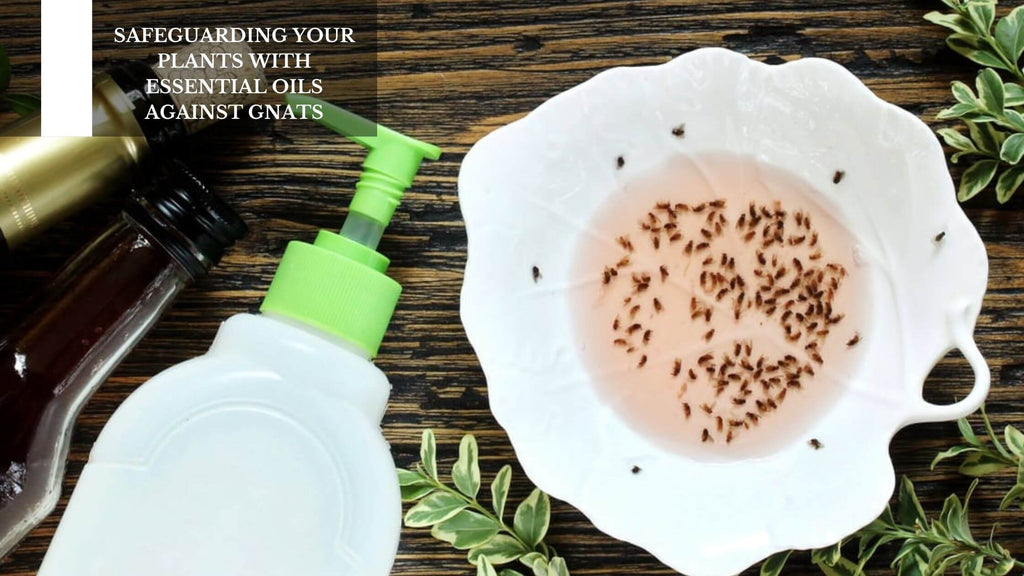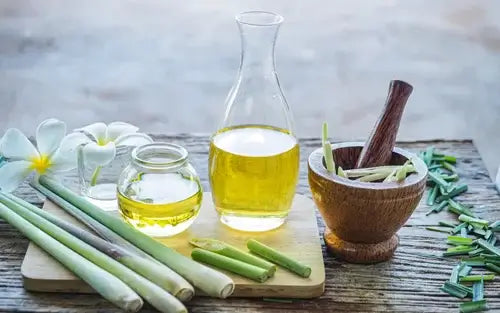Safeguarding Your Plants With Essential Oils Against Gnats

Gnats are a common problem for plant lovers. These tiny flying insects can be a nuisance, causing damage to your plants and making your home environment uncomfortable. Fortunately, there are essential oils that can help keep those pesky gnats away from your plants. Gnats can be a pesky problem when it comes to caring for your plants. These tiny insects, also known as fungus gnats, can wreak havoc on the health of your beloved greenery. They are attracted to the moist soil and organic matter, making potted plants an ideal breeding ground for them.
You may also like:
Gnats are a common problem for plant lovers. These tiny flying insects can be a nuisance, causing damage to your plants and making your home environment uncomfortable. Fortunately, there are essential oils that can help keep those pesky gnats away from your plants. Gnats can be a pesky problem when it comes to caring for your plants. These tiny insects, also known as fungus gnats, can wreak havoc on the health of your beloved greenery. They are attracted to the moist soil and organic matter, making potted plants an ideal breeding ground for them.
Best essential oils for gnats in plants
1. Lavender essential oil
When it comes to protecting your beloved plants from pesky gnats, lavender essential oil is a powerful and natural deterrent that you should have in your gardening arsenal. Not only does it emit a delightful floral scent, but it also possesses properties that repel gnats effectively. Gnats are attracted to the smell of decaying organic matter and damp environments, which are often found in potted plants. By incorporating lavender essential oil into your gardening routine, you can create an environment that gnats will want to steer clear of. The strong aroma of lavender essential oil acts as a natural repellent, deterring gnats from landing on your plants and laying eggs in the soil. Additionally, lavender essential oil has antimicrobial properties that can help combat any fungal or bacterial issues that may attract gnats in the first place.
2. Peppermint essential oil
Its strong scent is a powerful deterrent for gnats, making it an essential oil to have in your arsenal against these pesky pests. The active compounds found in peppermint essential oil, such as menthol and menthone, act as natural insecticides, deterring gnats from infesting your plants. Not only does the strong scent repel them, but it also disrupts their sensory receptors, making your plants an unappealing environment for these pests. Not only does the strong scent repel them, but it also disrupts their sensory receptors, making your plants an unappealing environment for these pests.
3. Eucalyptus essential oil
Not only does it possess a pleasant, refreshing scent, but it also contains properties that repel insects effectively. One of the main benefits of using eucalyptus essential oil for plant protection is its ability to deter gnats. These tiny flying insects can wreak havoc on your plants, causing damage to leaves and roots. By using eucalyptus essential oil, you can create a protective barrier around your plants, deterring gnats from coming near. The strong aroma of eucalyptus essential oil acts as a natural deterrent, making it less likely for gnats to infest your plants. Additionally, this oil has antimicrobial properties that can help prevent fungal growth, which gnats are attracted to. By using eucalyptus essential oil, you not only protect your plants from pests but also create an environment that promotes their overall health and well-being.
4. Tea tree essential oil
Tea tree essential oil is a powerhouse when it comes to plant protection, offering a safe and effective way to combat these nuisances without harming your beloved greenery. Tea tree essential oil works by inhibiting the growth of fungi and bacteria that can lead to plant diseases. By creating a protective barrier, it helps prevent the spread of harmful pathogens that can compromise the health of your plants.
5. Lemongrass essential oil

Derived from the lemongrass plant, this essential oil has been used for centuries for its medicinal and aromatic properties. One of the key advantages of using lemongrass essential oil as an insecticide is its delightful aroma. Unlike harsh chemical sprays that leave behind a strong and unpleasant odor, lemongrass essential oil emits a fresh and citrusy scent that adds a pleasant touch to your garden or indoor space. But don't let its pleasant fragrance fool you - lemongrass essential oil packs a powerful punch against gnats. It contains compounds like citral and geraniol, which are known for their insect-repellent properties. When sprayed or applied to your plants, lemongrass essential oil creates a natural barrier that keeps gnats and other small insects at bay.
6. Neem essential oil
Derived from the seeds of the neem tree, this essential oil has long been used in traditional medicine and agriculture for its powerful insect-repelling properties. One of the key advantages of neem essential oil is its effectiveness against a wide range of pests, including gnats. Its active compounds act as a natural insecticide, disrupting the life cycle of these tiny nuisances and preventing them from causing further damage to your plants. By applying neem essential oil, you can create a protective barrier that keeps gnats at bay, ensuring the health and vitality of your garden. Aside from its pest control abilities, neem oil offers additional benefits for your plants. It acts as a natural fungicide, helping to combat common fungal infections that can weaken and harm your plants.
You may also like:
FAQs
1) How to spray the essential oil mix on plants?
Transfer the diluted essential oil mixture into a spray bottle and lightly mist the leaves, stems, and soil of your plants. This will help deter gnats and other pests without harming the plants. Pay attention to areas where gnats tend to congregate, such as the top layer of soil or the undersides of leaves. Directly apply the diluted essential oil mixture to these areas to effectively combat the pests. Keep an eye on your plants after applying the oils to ensure they are not showing any signs of sensitivity or damage. If you notice any adverse reactions, discontinue use immediately.
2) What precautions are to be taken while spraying on plants?
It's worth noting that essential oils should be used with caution and in moderation. Diluting the oils properly and following recommended application methods is crucial to ensure the safety of your plants. Additionally, some oils may be more suitable for certain plant species than others, so it's important to research and understand the specific needs of your plants before using essential oils.


Leave a comment